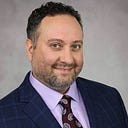What Alternative Therapies Can Be Used to Improve Mental Health?
There are many types of treatment that can be used to improve mental health. While it is always essential to consult your mental health professional regarding the right treatment for you, alternative therapies are commonly integrated into the healing process.
Alternative therapies are not considered a part of mainstream care. While they can be used as a primary treatment, they are typically complementary to other types of therapy, such as psychotherapy and medication. They focus on balancing mental, spiritual, and physical wellbeing to provide overall healing.
This article will review the alternative therapies often integrated into mental healthcare so you can determine if they are right for you.
Acupuncture
Acupuncture is an ancient practice with roots in traditional Chinese medicine. It involves puncturing the skin with tiny metal needles. The needles may be accompanied by electrical stimulation to enhance the effects.
It is believed that there are more than 2,000 acupuncture points in the body connected by meridians. When needles are applied, they stimulate the pathways creating energy flow that is said to improve overall health. The treatment may be effective in treating a variety of conditions that are both mental and physical in nature.
Acupuncture’s effectiveness in reducing symptoms of mental illness has been clinically reviewed with mostly positive results. An 8-week study of 151 men and women showed that those that received acupuncture treatment saw a significant improvement in symptoms. Effects were similar to the antidepressant drug fluoxetine.
Other studies showed that acupuncture can reduce depression during pregnancy and reduce migraines caused by depression.
Aromatherapy
Essential oils can be revitalizing, soothing, healing, and more.
Aromatherapy involves using essential oils in massage, including them in baths, or dispersing them throughout the room via a dispenser. The scent emitted may be beneficial in reducing stress and anxiety, which are often characteristics of mental illness.
The treatment has been shown to be effective in treating mental illness, primarily depression. Reviews of previous studies indicate that aromatherapy massage may yield better results than inhalation. However, both can work to some degree.
More studies are needed to determine whether it should be incorporated in a clinical setting.
Herbal Remedies
Medication is often used to reduce mental illness, but it can lead to unpleasant side effects. It can also be challenging to stop taking drugs once your body gets used to them. Herbal remedies may provide wellness boosting effects without the harmful side effects.
Herbs commonly associated with mental health effects include:
● St. John’s Wort: Relieves depression
● Valerian Root: Reduces anxiety
● Passionflower: Reduces anxiety and can work as a mild sedative
● Bach Flower Remedies: Minimizes anxiety and fatigue while boosting concentration and memory
● Sage: Relieves depression and anxiety while improving memory
● Chamomile: Works as a mild sedative
Note many herbal remedies are not FDA approved and may not be safe and effective. It’s best to look for a remedy that has a Traditional Herbal Registration (THR) or a product license (PL) number on the packet.
A PL means the product has been proven to work in medical trials. A THR is for products where there is less evidence that they are effective.
It’s also best to talk to a doctor before taking herbal remedies, especially if you have underlying health conditions or are taking other medications. This is because herbal remedies may have harmful effects when combined with certain medicines or may aggravate other underlying health conditions. Your health care professional will be able to let you know if it’s safe to proceed with integrating a herbal supplement into your health care routine.
Studies have shown that herbal remedies have varying degrees of success in improving mental illness. For example, lavender has been shown to have the potential to reduce anxiety and improve sleep. And while St. John’s Wort has proven to work as well as some anxiety medications in certain studies, it can make symptoms worse when taken in combination with other drugs.
Homeopathy
Homeopathy is based on the idea that a substance that causes certain symptoms can also make them go away. Homeopathic products contain these substances in a watered-down form which is believed to make them more effective.
There are several types of homeopathic remedies that are said to improve mental health and, specifically, to treat anxiety. These include:
● Aconite
● Argentum nitricine
● Arsenicum album
● Calcarean carbonica
● Gelsemium
● Ingnatia
● Kali arsenicosum
● Kali phophoricum
● Lycopodium
● Phosphorus
● Silica
● Stramonium
One study showed that homeopathic medicines were effective in reducing anxiety and depression in women 22–67. But a review of previous studies showed that the available data was insufficient in supporting their use in medical care.
Similar to herbal remedies, your health care provider should be consulted before you begin incorporating any of these remedies into your routine. Many of these remedies also lack FDA approval and could potentially have adverse effects when combined with certain medications or given underlying physical conditions.
Conclusion
There are several alternative treatments that can be integrated into traditional mental healthcare. While studies have shown that many yield positive results, the overall expert opinion is that more research is needed to prove their efficacy. If you are considering adding them to your routine, be sure to talk to your doctor to ensure they are safe before proceeding.
